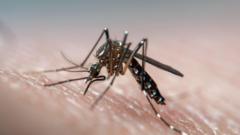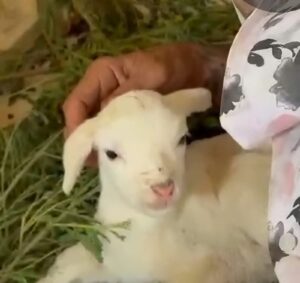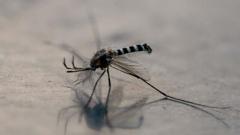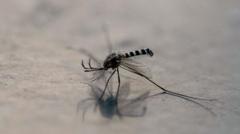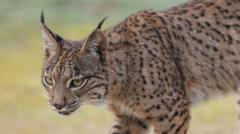In a bid to curb the crippling diseases carried by mosquitoes such as dengue, Zika, and yellow fever, scientists have turned to an unconventional method: making male mosquitoes deaf. The research team from the University of California, Irvine, focused on transforming male mosquitoes' genetic pathways related to their hearing ability, leading to significant consequences for their reproduction. Mosquito mating typically occurs in the air, where males rely heavily on auditory cues—particularly the wingbeats of females—to initiate courtship.
In their experiment, the researchers successfully manipulated a specific protein known as trpVa, crucial for sound perception in these insects. After the modification, the male mosquitoes displayed no inclination to engage with female partners, failing to mate even after being confined together for three days.
The study highlights the Aedes aegypti mosquito, notorious for transmitting diseases to an estimated 400 million people globally each year. By disrupting their mating patterns, the research aims to decrease the population of these disease-spreading insects.
Published in the journal PNAS, the researchers noted that the impact of the mutation was "absolute," with the genetically altered males missing all opportunities to mate, unlike their wild counterparts who actively copulated and fertilized almost every available female.
Dr. Joerg Albert, an expert in mosquito mating dynamics from the University of Oldenburg in Germany, commented on the findings, emphasizing that impairing the sense of hearing is a promising avenue for controlling mosquito populations. However, he also pointed out the need for further study to understand the long-term ramifications fully.
Another utilization of this research could involve releasing sterile males into regions heavily affected by mosquito-borne illnesses, offering a complementary approach to population control. Though criticized for their role in disease transmission, mosquitoes remain crucial to the ecosystem, serving as food sources for various animals and playing a role in pollination.
In their experiment, the researchers successfully manipulated a specific protein known as trpVa, crucial for sound perception in these insects. After the modification, the male mosquitoes displayed no inclination to engage with female partners, failing to mate even after being confined together for three days.
The study highlights the Aedes aegypti mosquito, notorious for transmitting diseases to an estimated 400 million people globally each year. By disrupting their mating patterns, the research aims to decrease the population of these disease-spreading insects.
Published in the journal PNAS, the researchers noted that the impact of the mutation was "absolute," with the genetically altered males missing all opportunities to mate, unlike their wild counterparts who actively copulated and fertilized almost every available female.
Dr. Joerg Albert, an expert in mosquito mating dynamics from the University of Oldenburg in Germany, commented on the findings, emphasizing that impairing the sense of hearing is a promising avenue for controlling mosquito populations. However, he also pointed out the need for further study to understand the long-term ramifications fully.
Another utilization of this research could involve releasing sterile males into regions heavily affected by mosquito-borne illnesses, offering a complementary approach to population control. Though criticized for their role in disease transmission, mosquitoes remain crucial to the ecosystem, serving as food sources for various animals and playing a role in pollination.

